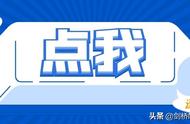人教版七年级上册英语第六单元重点知识总结
本单元单词表
banana 香蕉
hamburger 汉堡包
tomato 西红柿
ice-cream 冰激凌
salad 沙拉
strawberry 草莓
pear 梨
milk 牛奶
初中英语学霸提分笔记,初中提分必备
¥30 淘宝 购买
bread 面包
birthday 生日
dinner (中午或晚上吃的)正餐
week 周;星期
think about 思考;思索
food 食物 不可数
sure 当然;肯定;一定
How about (提出建议)......怎么样?
burger 汉堡包
vegetable 蔬菜
fruit 水果
right 正确的;适当的
apple 苹果
then 那么
egg 蛋;鸡蛋
carrot 胡萝卜
rice 大米;米饭
chicken 鸡肉
so (引出评论或问题)那么
breakfast 早餐;早饭
lunch 午餐
star 明星;星星
eat 吃
well 好;令人满意地
habit 习惯
healthy 健康的
really 真正地
question 问题
want 需要;想要
be 变成
fat 肥的;肥胖的
单词解析
1.breakfast n.早餐;早饭 (表示一日三餐前的词一般不用冠词)
【解析】①吃三餐习惯与动词have 连用,且为零冠词,但与形容词连用时,前面要加不定冠词a/an。
have breakfast 吃早饭
have a good breakfast 吃一顿丰盛的早餐
have a quick breakfast 早餐吃得很快
②at breakfast 吃早餐时
【扩展】brunch n.早午餐
2. well adv.好;令人满意地
【解析】常见搭配:do well in…在……做得好
辨析good,fine,well,fine.
① good 意为“好的,令人满意的”,常指物品的质量,人的品质等方面的好,也常与morning,evening,afternoon等词搭配表示问候。
Alice is a good girl. 爱丽丝是一个好女孩。
②fine:多指身体状况好或天气好等。在表示问候的交际用语中意为“健康的,身体好的”,在询问天气的交际用语中,意为“晴朗的”
③well:常用作副词,说明某个动作做得好;作形容词时只表示身体好,相当于fine.
They sing well. 他们唱得好
—How is she?
—She is very well.= She is very fine.她身体很好。
④nice:强调某人或某物外表好看,给人赏心悦目的感觉;也可表示愉快的心情。
Nice to meet you.
That car is very nice . 那辆小汽车很好看(外观美,但是质量不一定好)
This car is very good.这辆小汽车很棒(质量好)
3.habit n.习惯
【解析】 ①固定搭配:out of habit 出于习惯 eating habits 饮食习惯
have a good habit 养成好习惯
develop/form the habit of…养成……的习惯
break/give up the habit of 戒除……的习惯
②比较:habit 和custom
habit:可数名词,指个人的习惯、癖好
custom:主要指社会或团体的风俗、习惯
4.healthy adj.健康的
【解析】n. health adv. healthily 健康地反义词:unhealthy
keep/stay healthy 保持健康 healthy food 健康食品
5.want v. 需要;想要
【解析】want to do sth.想做某事
want sb. to do sth.想要某人做某事
6.fat adj.肥的;肥胖的
【解析】反义词:thin 瘦的 在英语中人们比较忌讳使用fat这个词,而是委婉的改用其他说法。如:
You are too fat.(×)
You are overweight . 你太胖了。
7.question n.问题
【解析】①常用搭配:without question 毫无疑问 out of the question 不可能的
one last question 最后一个问题
②比较question和problem:
question:通常指主观上疑惑不解而提出的问题,有待解决或解答的问题,常与ask,answer等连用;此外还可作动词,意为“询问”。
problem:指客观存在等待解决的问题,也可指被提出的问题,指疑难的,困难的问题,如:数学、几何、失业或令人困惑的事等方面的问题,常与solve 后set 等连用。
Can you answer the question?你能回答这个问题吗?
The teacher gave them 20 maths problems.老师给他们出了20道数学题。
8.then adv.那么
【解析】till/until then 直到那时 from then on 从那时起
just then 就在那时 (every)now and then 不时,偶尔
9.rice n. 大米;米饭
不可数名词
a grain of rice 一粒大米 rice field 水田;稻田
10.chicken
【解析】① 不可数名词,意为“鸡肉”
②可数名词,意为“小鸡”
表示肉类的名词:
fish 鱼肉 beef 牛肉 pork 猪肉 meat 肉 mutton 羊肉
【扩展】hen n.母鸡 ;cock n. 公鸡
11.so conj. (引出评论或问题)那么
【解析】①because 引出原因,so 引出结果,但because 和so 不能同时出现。
②常用搭配: so as to 为了,以便 so far 到目前为止
so that 以便于;为了 so…that……如此……以至于
12.sure adv. 当然;肯定;一定
【解析】①作副词,sure 与“certainly”,“of course”同义。
②作形容词,意为“肯定的;确定的;有把握的”,常见的结构有:
Sb. be sure of sth./doing sth. “一定/必定将会得到或发生某事”
Sb. be sure to do sth. “一定/必然会做或发生某事”
Sb. be sure that…“……有把握/确信……”
He is sure of passing the test. 他肯定能通过考试。
=He is sure to pass the test.
=He is sure that he can pass the test.
③常见搭配:for sure 无疑;肯定 make sure 弄清楚;查明
be sure to do 务必,一定 be sure of oneself 有自信
surely:想必;无疑
13.really adv.真正地 adj. real 真的
【解析】really是副词,常用来修饰形容词,动词或其他副词,起加强语气的作用。常位于助动词、系动词的后面,实义动词,形容词或副词的前面。
This book is really good .这本书的确很好。
I really love the dog. 我确实喜欢这只狗。
【扩展】really 还可以单独使用,表示感兴趣,惊讶,怀疑等。读时用“升调”,意为“真的吗?”
—We are going to Hong Kang next month. 我们下个月要去香港。
—Really? 真的吗?
14.eat v.吃
【解析】①eat 既可作及物动词,也可作不及物动词。
eat more vegetables 多吃蔬菜
Sports stars eats well. 体育明星吃得好。
We eat these things at noon . 中午我们就吃这些东西。
② 区别have 与eat:当后面既有吃的东西,又有喝的东西时,只能用have,不用eat。
I often have two eggs and a glass of milk for breakfast.
我早餐经常吃一个鸡蛋喝一杯牛奶
eat:指用最咀嚼、吞咽,后面常接固体食物
drink:指用嘴直接喝,而非吸管等,后面跟液体食物
have:既可以跟液体食物(相当于eat),还可以跟液体食物(相当于drink)
take:表示“服药”,呼吸空气等。如:take medicine
15.right adj.正确的;适当的
【解析】①n. 右边(反义词:left 左边);adj. 右边的
on the right 在右边 turn right 向右转
②常见用法:
Right.对的
That’s right.对的
All right 好吧(表同意)
That’s all right.没关系/不用谢= Not at all=That’s OK
right away 立即;马上
16.fruit n.水果
【解析】表示水果总称时,无复数形式,谓语动词用单数;但表示各种水果用复数形式“fruits”。
Some fruit is sweet .有些水果是甜的。
17.then adv.那么
【解析】①通常放在句首或句尾,用来缓和语气。
What do you think of it then?那么你如何看待这件是呢?
Then ,let’s go.那么,我们走吧。
②还有“那时;然后”的意思。但then 一般不能用来单独连接两句话,此时需在then 前面加and。
We eat hot dogs first,and then we drink orange juice.我们先吃了热狗,然后喝了橙汁。
18.salad n.沙拉
【解析】①作不可数名词,视为物质,意为“沙拉”。
Sometime I have salad for supper . 有时候我晚饭吃沙拉。
②作可数名词,意为“一份沙拉”或“一盘沙拉”。
Let’s make a salad .让我们做一份沙拉。
19.dinner n.(中午或晚上)吃的正餐
【解析】指一日之中较丰富的正餐(晚餐或午餐),而breakfast,lunch ,supper则指具体的早、午、晚餐。
dinner party 宴会
20.food n.食物
【解析】①作不可数名词,表示泛指的食物。
I’m hungry .I need some food.我饿了。我需要一些食物。
②作可数名词,指具体的“特定种类的食品”。
I like different kinds of foods. 我喜欢不同种类的食品。
③常用搭配: junk food 垃圾食品 fast food 快餐
21.week n.周;星期
【解析】常见搭配:
next week 下周 this week 本周 last week 上周
【扩展】weekend n.周末 weekday. 工作日
second 秒— minute 分 —hour 小时—day 天 —week周—month月—year 年—century 世纪
22.like v.喜欢
【解析】①v.喜欢 like doing sth./to do sth. 喜欢做某事
②prep. 像…… look like 看起来像……
23.milk n.牛奶 、
【解析】①不可数名词,意为“牛奶”,如fresh milk 鲜奶。
②作动词 ,意为“挤牛奶”
He is milking a cow. 他正在挤牛奶。
【扩展】常见饮品:water,beer,wine,juice,coffee,coke cola 等。
24.bread n.面包
【解析】不可数名词
cut bread 切面包 a piece of bread 一块面包
【扩展】 brown bread 黑面包
25.hamburger n.汉堡包
【解析】 ham (火腿) burger(汉堡)=hamburger(汉堡包)
26.ice-cream n.冰激凌
【解析】ice(n.冰) cream(n.奶油)=ice-cream(冰激凌)
重点句型解析
1.辨析think about,think of 和think over
【解析】:①think about:表示“考虑”,表示通过思考而得出某种结论,强调过程。后接名词,代词,动名词或从句。
②think of:表示“考虑”时,强调思考的结果,一般可与think about 互换;表示“对……有看法/评价”时,一般用think of。
③think over:表示“仔细考虑;仔细想想”,后接名词作宾语时,名词放在over 前后均可;但当后面接代词作宾语时,代词只能放在over的前面。
2.What do you like for breakfast?早餐你喜欢吃什么?
【解析】:①“What do/does 主语 like for 某餐”用来询问某人某餐喜欢吃什么?相当于“What do/does 主语 have/eat for 某餐”
②此处for是介词,意为“对于,就什么而言”,后常接名词或代词作宾语。
I’d like to have salad for lunch. 午餐我想吃沙拉。
Let’s go to a restaurant for lunch.我们去餐馆吃午餐吧。
【扩展】for 还有“供;给”的意思
Is this apple for me?这个苹果是给我的吗?
3.So what fruit do you like?那么你喜欢什么水果呢?
【解析】“特殊疑问词 名词”的用法,what 也可和其他名词搭配,表示不同的含义。
What color does your brother like?你弟弟喜欢什么颜色?
What vegetable do you like?你喜欢什么蔬菜?
4.How about ……怎么样
【解析】常见的用来询问对方,征求意见的句型有:
①What about…=How about … ……怎么样?
②Let’s 动词原形 其他 ,shall we?“让我们……好吗”
③Shall I/we … 我们……好吗?
④Why not 动词原形 其他
⑤You had better (not)do sth. 你最好(不)做某事
⑥Would you like sth./to do sth.
常见的回答:
肯定回答:That’s a good idea./OK./All right./Of course,I’d love to.等
否定回答:I’m sorry,but…/I’d like/love to,but…等













